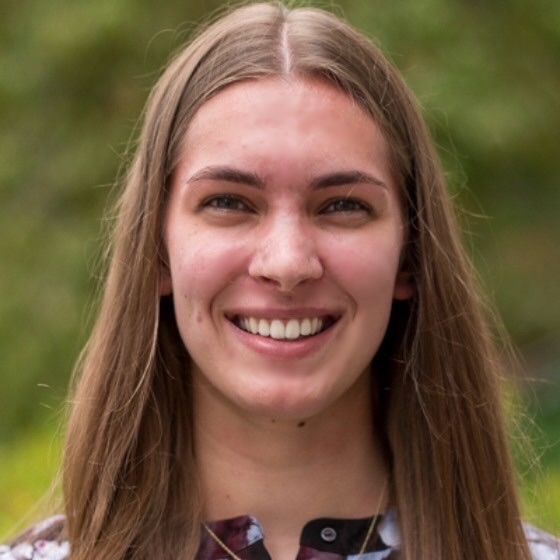Michaela Luebbers ~ Materials Science PhD Candidate @Penn State
 Can you tell us a bit about your background and what you do now?
Can you tell us a bit about your background and what you do now?
My name is Michaela and I'm currently a materials science PhD candidate studying ductile fracture mechanisms in additively manufactured metals at Penn State. I received my Bachelor's degree in mechanical engineering from the University of Illinois at Urbana-Champaign. My experience on a FIRST Robotics team in high school lead me to my mechanical engineering degree, and my experience on Illini Solar Car in college encouraged my interest in fracture mechanics and grad school. I eventually want to combine my materials science and mechanical engineering skills to design mechanical components that are resistant to failure.
What do you most enjoy about your current position?
While I definitely consider myself more of an engineer than a scientist, I like that I have a new way of approaching problems. When I was on my solar car team, I had problems I had to solve quickly, so I wanted to get a good enough solution that worked as soon as possible. In my PhD as a scientist, I'm no longer looking for just a solution, but actually understanding the fundamentals of the whole problem. I now have a bigger toolbox in which I can solve engineering problems in the future.
Did you have a favorite mentor and how did they inspire you?
My longest and favorite mentor has been my father. He is an engineer himself and can solve almost any problem, so from a young age he had me help him as he would fix things around the house. I started showing an interest in engineering, so he helped cultivate my knowledge and encouraged me to participate in activities that grew my skills. I always have and always will go to him for advice on engineering and interpersonal problems. He has helped me build confidence in myself as an engineer and is one of my biggest cheerleaders.
What is one piece of advice you wish you had received when you were just starting out?
I would say to not get caught up in the details. I used to (and still do) tend to overthink problems, but a lot of the times that gets in the way of actually solving the problem. If you have a problem and you're stuck on the solution, start by looking for existing solutions, and try to implement something similar. Even if it doesn't work perfectly, you can then go from there and make the modifications needed to fit your problem. This concept has held up when designing car components in Illini Solar Car and and when modeling fracture mechanics in my PhD. Solutions normally don't work on the first try, but don't let that get in the way of your progress towards success.
